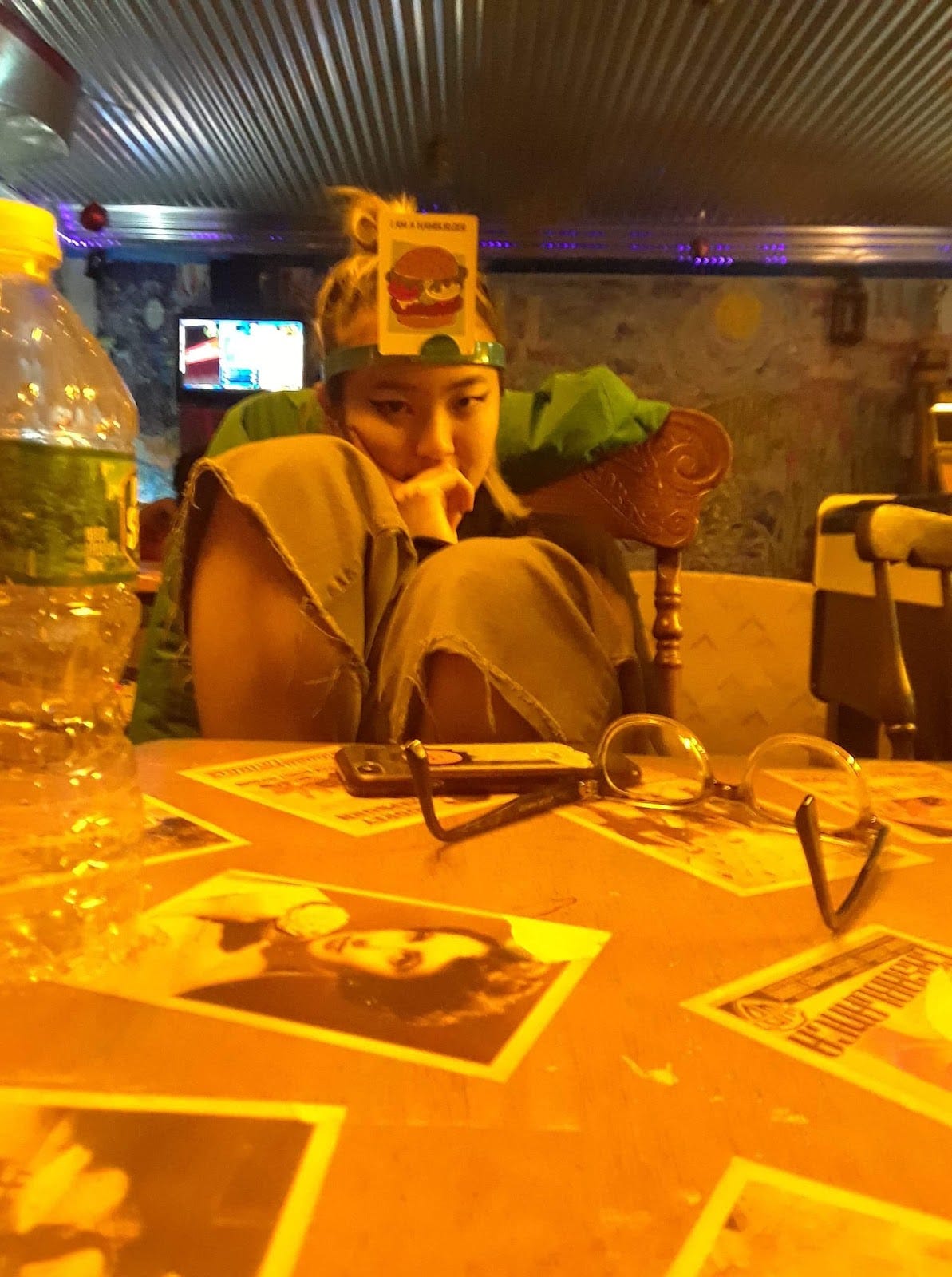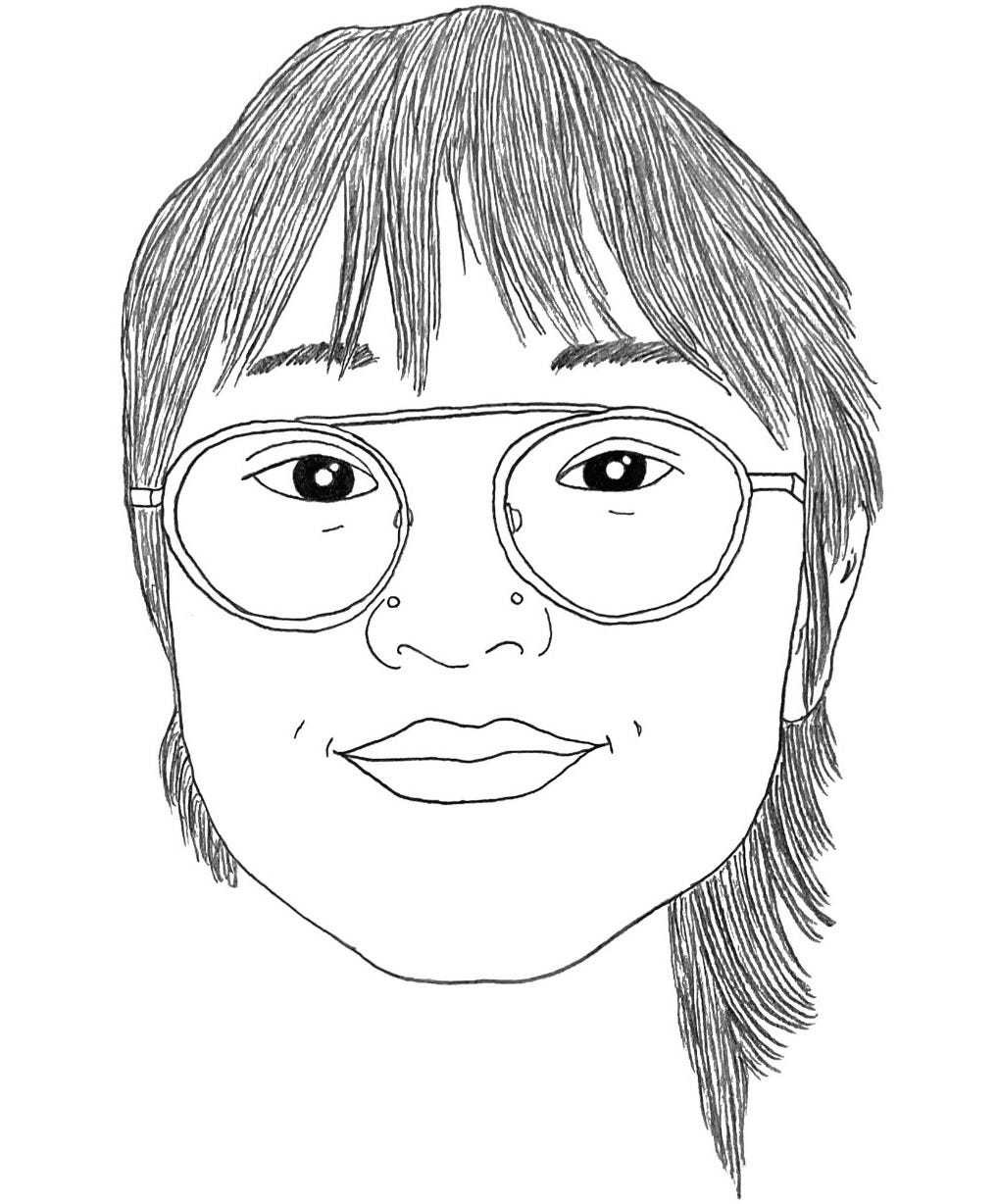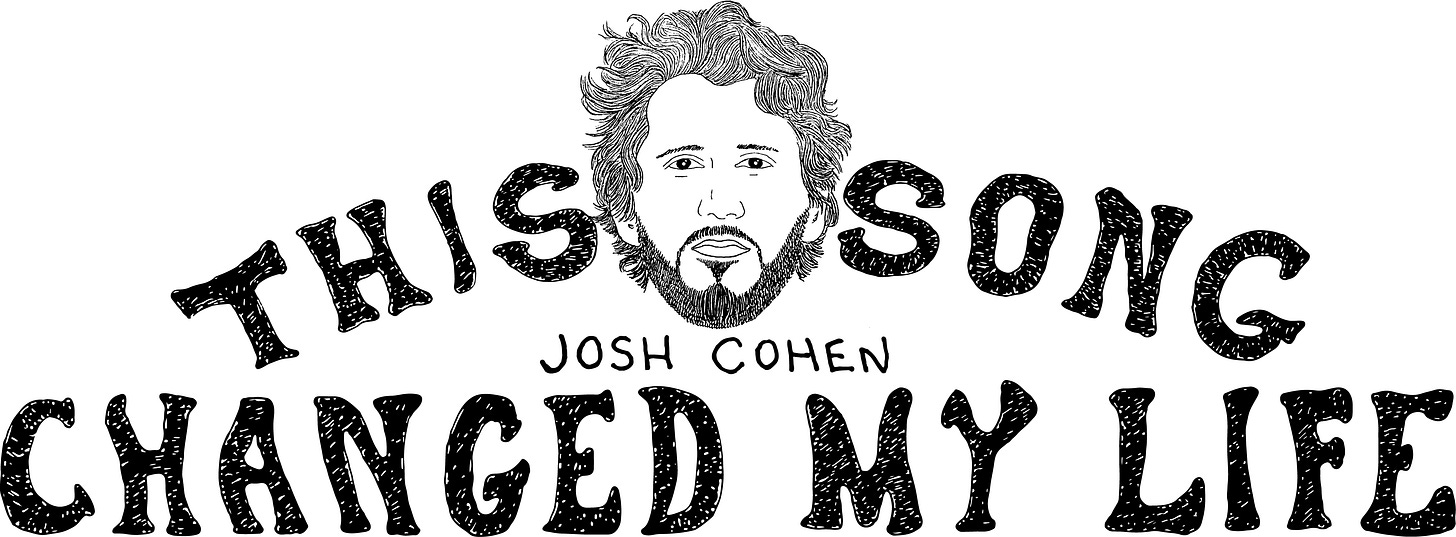No. 072 - Orange Juice’s “Rip It Up” changed my life
Sal Kimura dances with hope and finds transformation in the face of destruction
This Song Changed My Life is an independent music publication featuring essays from people all around the world about the songs that mean the most to them. Created (and illustrated) by Grace Lilly.
Enjoying the series? Support here to keep the good stuff coming 😊
• 5 min read •
For a long time, I tried to forget the first time I listened to this song because of who showed it to me.
I had just started college and was struggling with an intense depression that carried over from high school. I didn’t make many new friends until I joined the campus magazine and started hanging out with the student DJs from the campus radio station — and even then, I thought everyone was so much more knowledgeable than me and therefore cooler than me. Two of those DJs became friends who I hung out with for hours at a time, nearly every other day. They always took the three hour slots from midnight to 3am, and before and afterwards we’d shoot the shit while sitting in whatever place would let us loiter and listen to music.
I started developing a crush on one of these friends in the summer between semesters. It overwhelmed me at the time and felt different than the other crushes I had, because this was the first time it felt like something could actually happen. Being the kind of person who has always opted to shoot my shot rather than feel the agony of the crush for too long, I confessed. Without any fanfare, he politely rebuffed me and we continued being friends. From that point on, I let my feelings pass me by, just happy to be in his company at all.
But one night that fall, I’m driving him home in my fucked up Nissan Altima. It must’ve been the time of night when we were lucky to see anyone else on the typically busy commuter parkway. He probably turned to me, cool as a cucumber, saying: “Can I put a song on the queue?” All the windows were down and I could feel my hair whipping around. Every time I glance at him in my memory his face doesn’t materialize in a way that feels consistent, and I only get a glimpse with every passing streetlamp. The pumping synth bounds through the speakers, and the coolness of the air, the first taste of autumn, merges with the deceptively simple chorus that intones: “Rip it up and start again…”
After a moment of silence between us, the air suddenly thick with potential energy, I drove home red in the face at the feeling that something had just happened. I couldn’t help but take his song suggestion as a message; the silly lyrics detailing the experience of wanting to take a chance on a crush, I assigned to him as the narrator. But I chose to ignore it rather than decipher his behavior, remembering that we already decided to stay only as friends.
Overtaking this memory is what comes later.
He would make choices that would ultimately destroy our friendship, and I would be left with trauma. I’d push this memory, and ultimately this song, aside for many years, trying to forget him and what happened, and I would fail. I’d fail to forget it so many times that I’d come back around to listen to all the songs that reminded me of that period of my life, read and reread journal entries and text conversations, and try to write out the story in as much detail as possible to try to “make sense” of it. I kept thinking that maybe more time, more physical distance, more material change, more novelty, more friends, more enviable memories, more more more would eventually create a gap between me and the pain so large that it would feel less bad. I’d try to create a detailed timeline of events, try to find the exact point of inflection where things went wrong, and all the while I’d tell myself what everyone else did: “It’s not your fault.”
It didn’t matter that I knew this logically. I still always felt like it was my fault for being his friend, for wanting to see him in good faith, for having to have to “ruin” what was the beginning of a friendship that was starting to mean a lot to me. This incongruence of trying to give credence to two seemingly opposing modes of feeling was always the heart of the agony. Like a lot of people who have experienced trauma, I feel the impossible divide between “before” and “after” in my mind while my perception of time squashes, stretches, and ping pongs back and forth from one moment to another.
I’ve learned to surrender to the messiness of time.
There isn’t a version of “before” and “after” that can be defined. “After” is continuous, and it invokes the grief of “before.”
Upon revisiting, I was surprised to learn that out of all the songs that reminded me of him, “Rip It Up” never actually stung to hear. Sure, I’d be awash in the memories, but the song itself is so jubilant and corny that it never felt right to get lost in the feelings. Instead, I just dance.
Every time I listen to it, I “rip it up and start again.”
As the lyrics repeat over and over, I don’t feel implored to destroy or overwrite what came before. I feel encouraged to believe that there is a way for all of it to transform. While ripping something up is indeed an act of destruction, it’s also the moment that something begins to take a new shape.
And for all these seemingly opposing ends of feeling, here I am, still prancing around my apartment, feeling hopeful over and over and over again.
When Edwyn Collins’ voice loses its casual tone, repeating, “rip it up, and rip it up…” I can’t help but ball my fists and shake them. It’s a struggle to hold onto the belief that I can truly start again, but I’m going to cling to it well after the song fades out, the guitars strumming their rhythm and the synths bubbling into eternity.
Then I’ll hit repeat. ◆
Categories
Friendship • Family • Coming of Age • Romance • Grief • Spirituality & Religion • Personal Development
Recommended
Top 10 • Grace's Favorites • Secret
About Sal
Sal Kimura (they/them) is a graduate student studying library science and works at the New York Public Library. They write at their newsletter, Our House.
Instagram @twumble
⭐ Recommended by
Dani Laundry (No. 057)
Every TSCML writer is asked to recommend a future contributor, creating a never-ending, underlying web of interconnectivity 🕸️
If you enjoyed this post, “like” it & leave a comment 🧡
Top essays of 2024 🏆
The most-read essays of the year are here! (Plus a few honorable mentions)
An average concert ticket costs $122.84 🎟️
An annual subscription to This Song Changed My Life costs less than half of that ($50 to be exact).
Become a paid subscriber
Chipping in helps ensure the continued existence of TSCML — plus you’ll instantly unlock 30+ secret, paid-only posts (and counting).
People love it
What paid subscribers are saying
“I love this series! Want to pitch in so you can keep up the high quality content”
“Happy to support the good stuff”
“I believe watching your work develop will by itself change my life”
If you like this publication and want to learn more about me and my other projects, check out my personal newsletter, Weirdly Good <3
What song changed your life?
You, yes you! If you’d like to participate in This Song Changed My Life, just fill out this simple form for consideration. I’m always looking to hear people’s stories.
Explore
A rotting picnic table, the Grand Tetons, and a secret stash of film reels under the stairs — Josh Cohen assembles memories of his grandfather — No. 071 - Nick Drake’s “Road” changed my life
A prescient shower thought and a fateful phone call — how James Barrett's teenage dream came true — No. 070 - The Menzingers’ “Gates” changed my life
As Karabo Lediga's childhood home fades away, the radio sends a message of hope and comfort — No. 069 - Incognito’s “Don’t You Worry ‘Bout a Thing” changed my life












